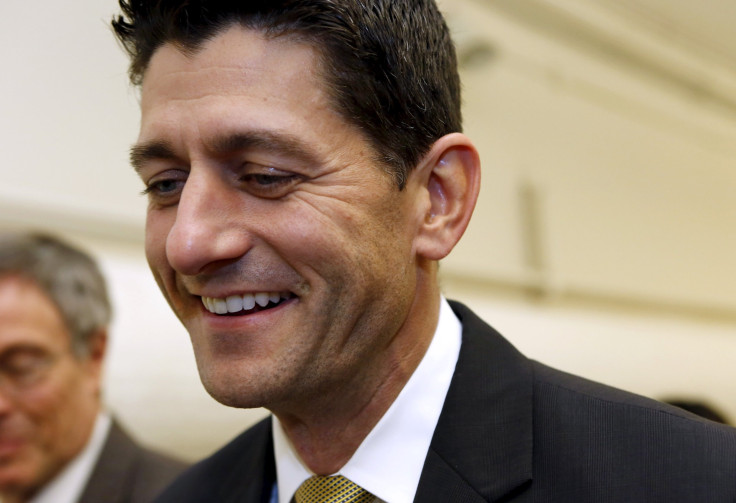Defense Budget 2016: Could Paul Ryan Solve National Defense Authorization Act Crisis?

As U.S. President Barack Obama prepares to sign off on a veto to stop the 2016 defense budget in its tracks Thursday afternoon, signaling the start of what could be a long battle between Congress and the White House over military spending, Rep. Paul Ryan, R-Wis., has emerged as the leading GOP candidate for speaker of the House and a man whom Republicans hope can bring an end to budgetary squabbles. The Wisconsin Republican emerged as a front-runner in the speaker contest after House Majority Leader Kevin McCarthy dropped out of the race to replace the departing John Boehner, who will resign at the end of the month.
Ryan, who was Mitt Romney’s running mate in the 2012 presidential election, enters the speaker of the House decision-making process at a pivotal time for the GOP party. Alongside the soon-to-be-vetoed defense budget, the debt ceiling will expire on Nov. 3, at which point a government shutdown will begin.
“Ryan has a good track record on this. He’s been able to produce budgets as the budget committee chairman that unified both fiscal hawks and defense hawks in the Republican Party," said Justin Johnson, a defense policy expert at the Heritage Foundation, a Washington, D.C.-based think tank. ”He did that for multiple years in row, which is not an easy task. His work on the Ryan-Murray deal also proves he’s capable of being able to bridge the gap between the different factions inside the Republican Party but also find ways to work with Democrats.”
The Ryan-Murray deal, which passed a bipartisan budget in 2013 and allowed the Pentagon a couple of years' relief from forced sequestration, helped prevent deep cuts in defense spending that the GOP opposed. However, Johnson said that the political landscape Ryan would be entering into now is far more hostile than it was in late 2013 when he and Sen. Patty Murray, D-Wash., brought both parties together. “The overall potential is certainly there if he becomes speaker, but this is a tough time,” said Johnson.
The White House and Congress are fighting over the details of the $612 billion 2016 National Defense Authorization Act. Obama’s administration is upset that the Congressional version of the bill uses an unregulated fund known as the Overseas Contingency Operations fund, which is a pot of cash originally meant to ensure that the wars in Iraq and Afghanistan could continue without be affected by national budgetary disputes, but that Congress is currently trying to use to beat defense budget caps that will begin next year.
While Ryan has yet to formally put his name in the hat for the position that so many in the GOP want him to pursue, he has said he would take on the job only if he “can truly be a unifying figure,” suggesting that he wants to end the stand-off between the Democrats and Republicans.
“First, we need to move from being an opposition party to a proposition party,” Ryan said. “The challenges we face today are too difficult and demanding for us to turn our backs and walk away.” Ryan also mentioned that the U.S. has a responsibility to fight against “global terror” while conducting “wars on multiple fronts.”
Boehner will officially nominate his successor next Wednesday, with an all-House vote scheduled for next Thursday.
© Copyright IBTimes 2024. All rights reserved.






















